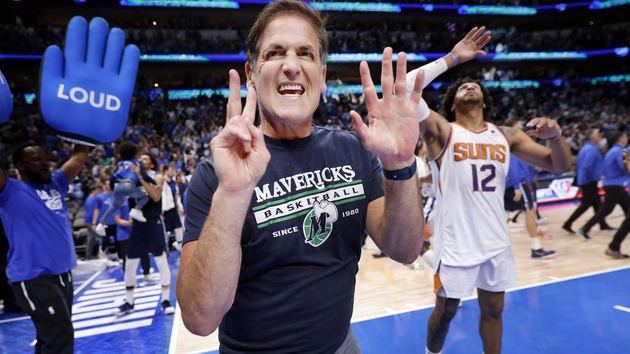your current location is:Home > Finance > depthHomedepth
Recession or recovery? From Apple to Microsoft, what tech giants tell us this week
This week's US stock earnings season ushered in a key week. Five major technology giants, including Google, Microsoft, meta, apple and Amazon, announced their earnings successively. The five companies that accounted for nearly a quarter of the total market value of the S & P 500 index not only dominated the ups and downs of us stocks this week, but also highlighted the breadth of US economic turmoil.
The second quarter performance of the technology giant with "incomparable wealth" was under pressure
Last year, the dividends brought by the epidemic to technology companies have not subsided. The total profits of the five giants exceeded 320billion US dollars, and the total operating revenue exceeded 1.4 trillion US dollars. If put in the world bank's national GDP ranking, it can rank 13th, second only to Brazil, and surpass Australia.
However, in the case of soaring inflation, consumer demand for goods has declined, the US dollar has strengthened, the supply chain has been disrupted, and technology companies that once showed tenacious resilience in the market turmoil have also shown performance differentiation. It is not difficult to see the impact of macro-economy on them from their performance reports.
In addition, from the perspective of stock price, as Wall Street said in an earlier article, once the important engine behind the U.S. stock market bull, these technology giants will bear the brunt with the fall of the Federal Reserve's interest rate hike stick, and the stock price is also facing the pressure of revaluation under higher interest rates.
Let's first look at Apple, the largest listed company and consumer electronics and technology giant in the United States with a market capitalization of more than $2.5 trillion. In the third fiscal quarter of apple as of June 25, the company recorded a revenue of $83billion, up 2% year-on-year and higher than the market expected $82.8 billion. However, this is still the slowest growth rate since the outbreak of the European and American epidemic in 2020, significantly slower than the 36% rise in the same period last year, and also a slowdown in sales growth for six consecutive quarters, Revenue fell 14.7% month on month.
On the whole, Amazon's second quarter financial report in 2022 showed that the growth rate of revenue and profit release exceeded market expectations, so the company's share price also surged by more than 10% after hours. The company's revenue was $121.2 billion, with a year-on-year growth rate of 7.2%, which was consistent with that of the previous quarter, and did not continue to slow down as scheduled. The actual revenue also slightly exceeded the upper limit of the guidelines and market expectations. The operating profit in this quarter was $3.32 billion, also exceeding the upper limit of the guidelines and the market expectation of $1.64 billion. The main point that exceeded expectations was that the resilience of retail business was better than expected, and the cost reduction and efficiency increase measures also took effect faster than expected.
Media analysts believe that despite the same concerns about inflation and economic recession, Amazon and apple still provide products that daily consumers are willing to buy. However, Microsoft and Intel, which also provide consumer products, are not so lucky, because a large part of their income comes from enterprises. In the current period of turbulence and uncertainty, enterprises usually reduce their purchases.
Microsoft's revenue in the second quarter of this year is still lower than expected. Although the performance guidelines have been lowered across the board last month due to the "adverse" impact of foreign exchange, the performance of this quarter reflects how much the strengthening of the dollar has hit the U.S. technology giant with a large amount of overseas revenue. In addition, the Russian market, online advertising, personal computer market and its own layoffs also have a certain negative impact on Microsoft.
In the second quarter, Microsoft's revenue and profit were lower than market expectations and the performance guidelines after the reduction last month, and its revenue hit the lowest growth rate in nearly two years; CFO said that the growth rate of core business intelligent cloud azure was 1 percentage point lower than expected in April, but the number of contracts reached a record. In the second quarter, the cost of Microsoft's shrinking Russian business was $126 million; The negative impact of the reduction in online advertising spending exceeded $100million; The deterioration of PC market caused the revenue of windows OEM to decrease by more than US $300million; Compensation for layoffs outside Russia was US $110million.
In addition, Intel, the largest chip manufacturer in the United States, was also hit hard by PC demand. Its revenue and EPS profit in the second quarter fell by 17% and 79% year-on-year, respectively. The annual revenue guidance was reduced by at least 10% and the annual EPS profit was reduced by 36%, both far below analysts' expectations. Terle executives once again mentioned the supply chain issue, but said that the performance had "hit the bottom", saying that recruitment would be slowed down, and capital expenditure this year would be 11% lower than previously expected.
In addition, the technology giants affected by the economic recession also include the advertising businesses of Google, snap, twitter and meta. When the economy is in recession, advertising spending is one of the first projects to be cut by enterprises. Superimposed with the adverse effects of Apple's previous privacy policies, the performance report is naturally difficult to hide the decline.
Google's revenue in the second quarter was $69.69 billion, lower than analysts' expectations of $70billion, and its revenue growth slowed to 13% from 62% a year ago. Earnings per share was $1.21, lower than analysts' expectations of $1.32. Thanks to the strong advertising revenue in this quarter and investors' expectations of more adverse factors in the financial reporting quarter of this quarter, Google's revenue did not meet expectations, but the US stock rose by more than 5% after hours.
Meta's overall performance was also slightly weaker than expected, and the guidance for the next quarter, which was the focus of the market, was significantly lower than expected. In the second quarter, meta's revenue was close to the lower edge of the guidance, basically in line with expectations, but the expenses were severely overspent, mainly because employees were still expanding against the trend. The revenue guidance for the next quarter is in the range of 26 billion to 28.5 billion, with an accelerated decline year-on-year (-10.4% to-3.5%). Although there is the impact of exchange rate changes (about 6 points affecting the growth rate), the guidance figure is still too far from the expected 30billion.
Social media giant snap's revenue growth hit a record low in the second quarter, and its share price fell sharply after hours, which means that the market believes that advertisers cut their budgets more than expected. Snap attributed this trend to widespread economic uncertainty and did not provide guidance on third quarter results.
As for twitter, its revenue in the second quarter was $1.177 billion, lower than market expectations, down 1% year-on-year; With a net loss of US $270Million, the company explained that in addition to "the headwind faced by the advertising industry in the macro environment and the uncertainty brought about by the Elon Musk acquisition are also factors leading to disappointing performance".
Concerns from CEOs and CFOs: wider impact
Undoubtedly, technology stocks are experiencing one of the worst moments in history. Compared with this quarter's performance report, the market pays more attention to the research and judgment of high-ranking officials of technology giants on the future economy.
Brian olsavsky, chief financial officer of Amazon, said on Thursday,
We are in a very difficult macroeconomic state, despite our sales growth of 7.2% this quarter. But we realize that things may change soon.
David zinsner, chief financial officer of Intel, also expressed his concern about the broader economic background after reducing his full year sales outlook by as much as $11billion.
We expect that the macroeconomic situation will continue to be weak and there may be a recession.
Intel predicts that the PC market will shrink by 10% from 2021, while Microsoft reports that sales of video games will decline further. Qualcomm, a mobile phone chip supplier, lowered its forecast for 5g mobile phone shipments this year to 650million to 700million from more than 750million three months ago.
Google's parent company, alphabet, said advertisers were cutting back on spending; Meta CEO Zuckerberg warned that "the economic recession will have a broad impact on the digital advertising business".
In the last quarter, the average price of advertising fell by 14%, while in the first quarter of this year, it fell by 8%. The situation seems to be worse than a quarter ago.
From the second quarter to this Thursday, the shares of NASDAQ, which is dominated by technology stocks, have fallen by about 15%. For many technology companies, the past quarter was not only difficult, but also more challenging than the market situation earlier this year.
In addition, it is worth noting that even apple, which has strong performance, cannot escape the problems brought by the strengthening of the US dollar. The strong US dollar is eroding the performance of US stock companies, which will be reflected in the second quarter report. Under the influence of the Fed's continued interest rate hike, the dollar index has risen by more than 10% this year, and has now risen to the highest level since 2002. At present, the strong US dollar has had a negative impact on the overseas sales of US stock companies. While reducing the company's overseas relative competitiveness, the value of the company's overseas revenue has also been affected (local currency depreciation).
IBM warned last week that a stronger dollar could reduce the company's revenue by $3.5 billion this year, with an impact of $900million in the second quarter. According to Chief Financial Officer James Kavanaugh, the current pace of dollar strength is "the fastest it has seen in more than a decade". More than half of all currencies hedged by IBM have fallen by double digits against the US dollar this year, and the current situation is "unprecedented".
related articles
Article Comments (0)
- This article has not received comments yet, hurry up and grab the first frame~












